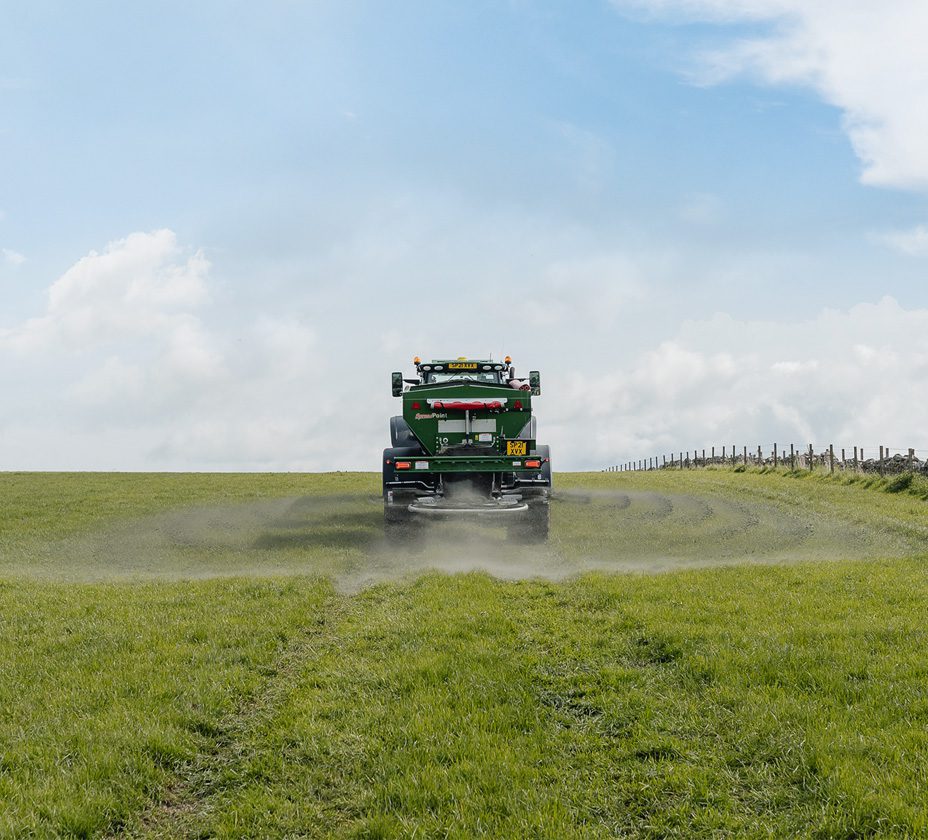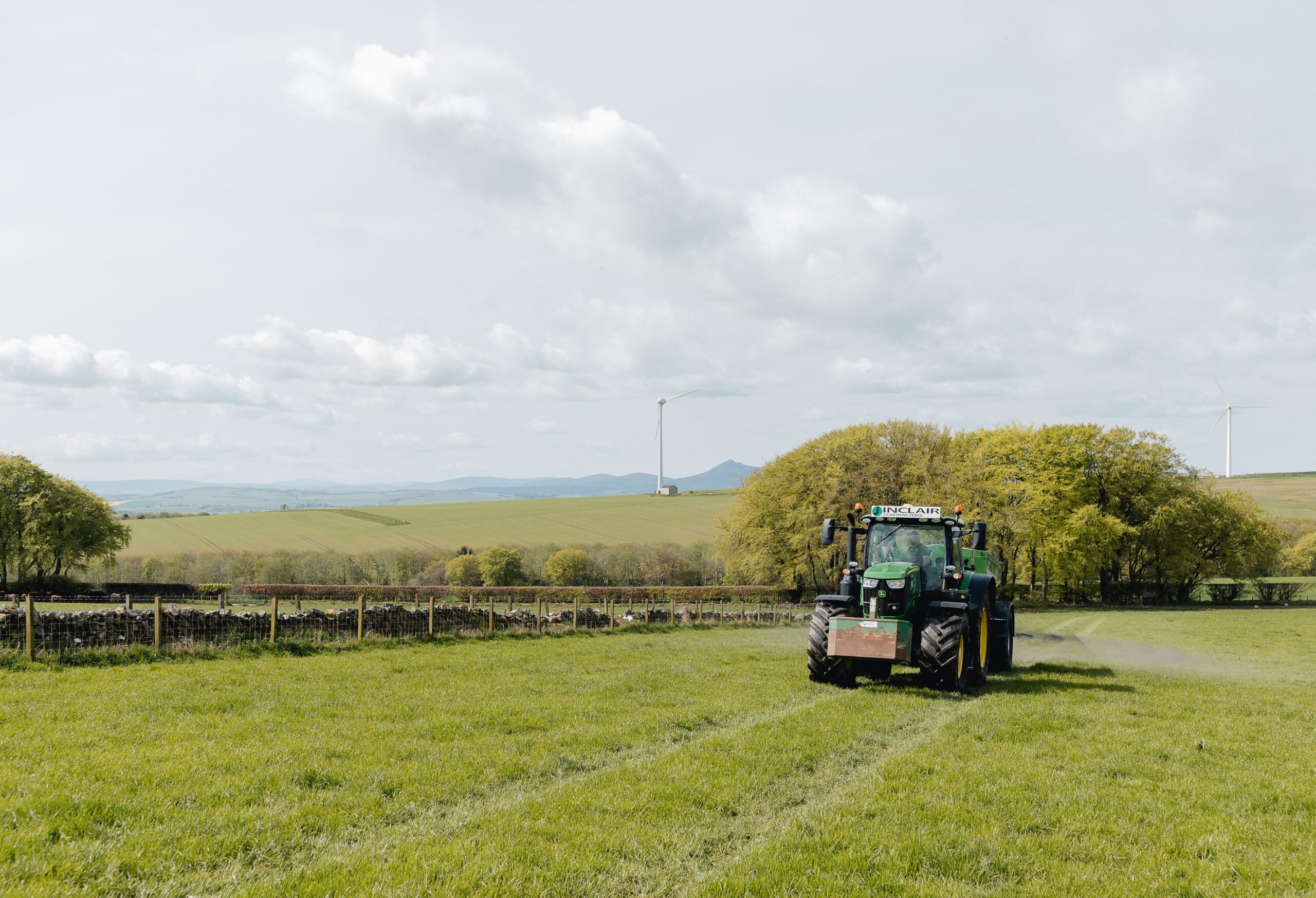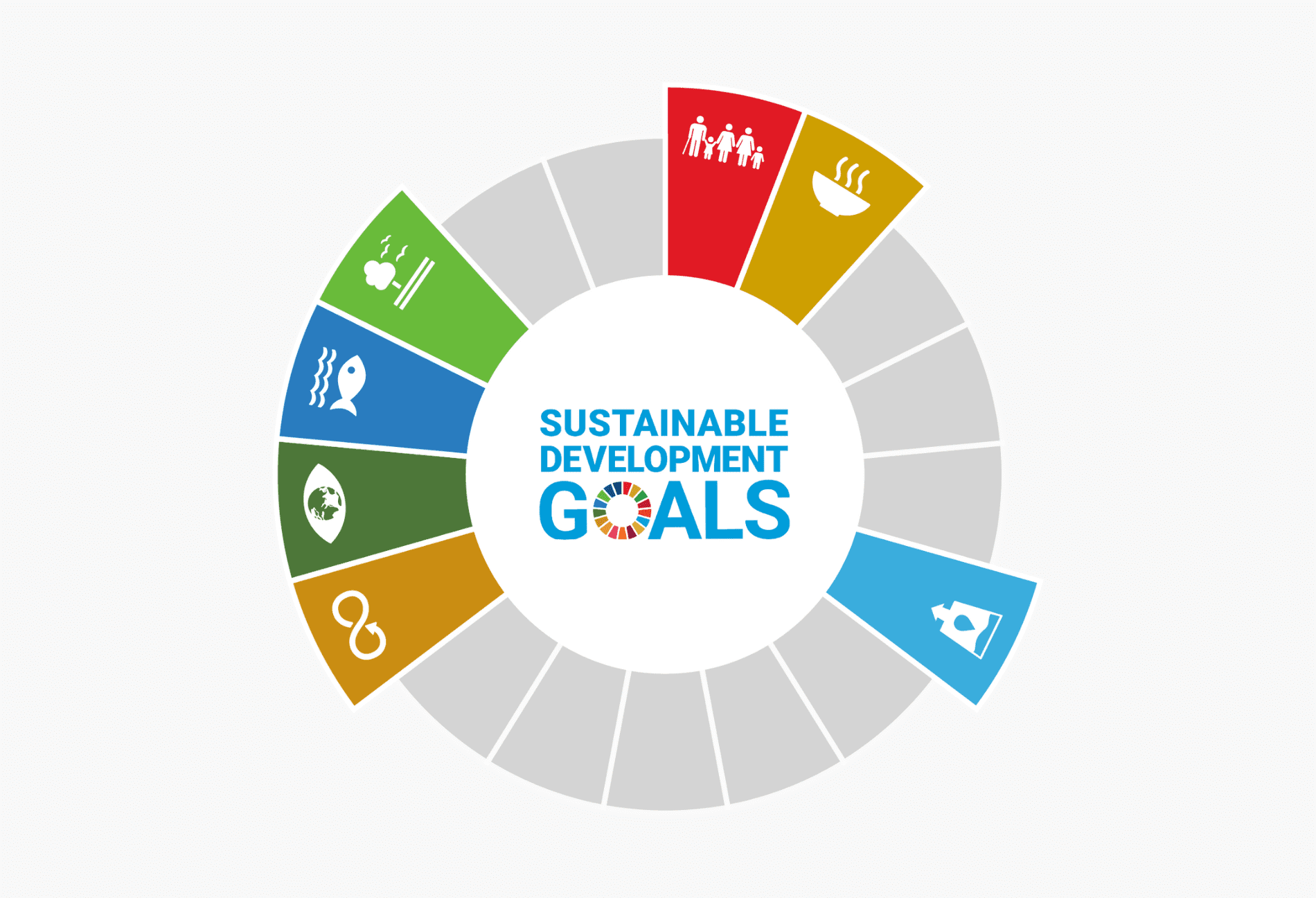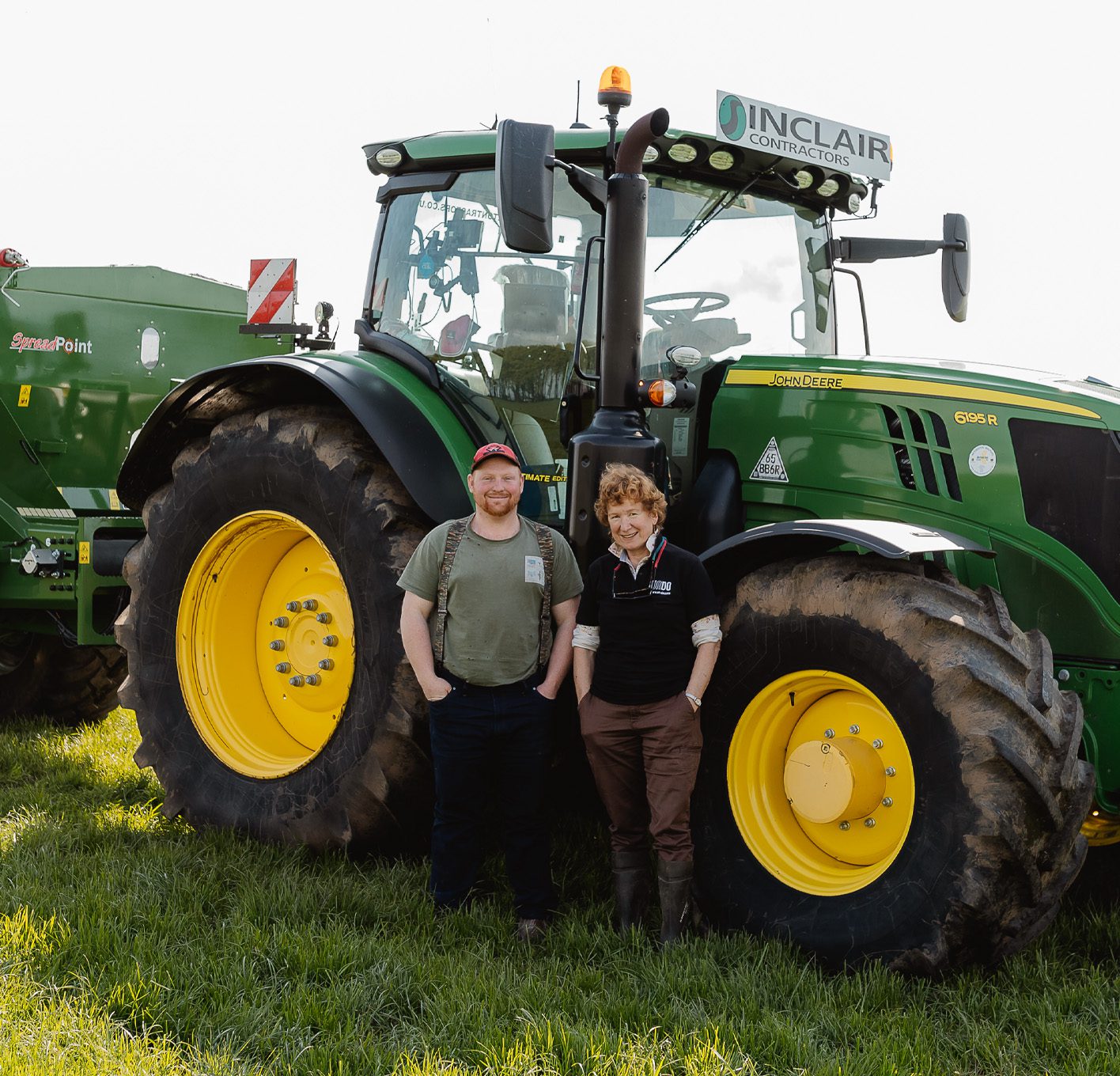Established by the United Nations in 2015, the Sustainable Development Goals (SDGs) are a call to action to end poverty, protect the planet and ensure that all people enjoy peace and prosperity by 2030.
What are the Sustainable Development Goals?
Comprising of 17 interlinked goals, the SDGs are designed to address the global challenges we face, including inequality, climate change, environmental degradation and justice. These goals aim to create a sustainable future for all, emphasising the need for global partnership and cooperation.
In consciously working towards these objectives, UNDO is positioned as an impactful contributor through the use of our enhanced rock weathering (ERW) solution for permanent carbon removal. We are not only directly tackling climate change but also playing a critical role in promoting environmental sustainability and socio-economic resilience.
Our global projects exemplify how nature-based solutions, science and technology can align with the SDGs, driving progress toward a greener, more equitable world. Our work in ERW is contributing to achieving the Sustainable Development Goals by:
Addressing Poverty and Climate Vulnerability with SDG 1: No Poverty

Enhanced rock weathering aligns with SDG 1‘s aim to bolster poor and vulnerable communities against climate change and other environmental challenges, targeting a reduction in their exposure to extreme events by 2030. Our global projects directly contribute to climate change mitigation by accelerating natural rock weathering processes to sequester atmospheric CO₂. The resulting decrease in CO₂ levels can help moderate global temperatures, reducing the severity of climate-related disasters like droughts and storms, which disproportionately impact vulnerable populations.
Our work also supports vital environmental benefits such as water conservation and soil erosion prevention, enhancing water filtration and directly contributing to climate resilience. These actions are essential in addressing the objectives of SDG 1, offering a promising approach to mitigating the impacts of climate change on the world’s most climate-vulnerable groups and creating a more sustainable and equitable global society.
Feeding the World with SDG 2: Zero Hunger

Our work directly supports SDG 2: Zero Hunger by enhancing soil fertility and promoting sustainable agricultural practices. By increasing the availability of essential nutrients and maintaining soil pH, ERW boosts agricultural productivity, which is vital for achieving food security, improving nutrition and ensuring the resilience of our farming systems. This approach aligns with target 2.4, aiming for sustainable food production and resilient agricultural practices that enhance ecosystem maintenance and adapt to climate change, measured by the proportion of agricultural area under productive and regenerative farming.
By contributing to the reduction of atmospheric CO₂ levels, ERW addresses the broader challenge of climate change, which impacts food security through extreme weather events like droughts and floods. This comprehensive strategy not only moves us closer to fulfilling SDG 2’s objectives but also highlights the critical role of innovative solutions like ERW so we can feed the world while also protecting our planet.
Preserving Our Waters with SDG 6: Clean Water and Sanitation

UNDO and our solution contributes significantly to SDG 6‘s goals of improving water quality and increasing water-use efficiency, addressing key targets aimed at reducing pollution and practising sustainable water management. By promoting soil stability and reducing erosion, ERW minimises sediment runoff into water bodies, thereby enhancing water quality and supporting ecological balance. The process not only prevents pollution but also strengthens soil and water ecosystem integrity by encouraging robust plant growth and root networks, which are crucial for maintaining clean water resources.
The application of silicate rocks to agricultural land enriches the soil with essential nutrients, potentially reducing the need for synthetic fertilisers, a major source of nutrient runoff and water pollution. This contributes to more nutrient-efficient soil structures and improved water-use efficiency in agriculture, aligning with SDG 6’s ambition to significantly reduce water scarcity and promote the sustainable management of water and sanitation. Our approach offers a significant contribution to achieving cleaner, safer water and more efficient agricultural practices, essential for the well-being of global communities.
Championing Sustainable Practices with SDG 12: Responsible Consumption and Production

ERW can play a pivotal role in achieving SDG 12, aimed at fostering sustainable consumption and production patterns, particularly within the realm of agriculture. As part of the 10-Year Framework of Programmes on Sustainable Consumption and Production Patterns, it stands out for its dual role as a regenerative agricultural practice and a nature-based solution for carbon removal. By improving soil health through the release of essential nutrients and potentially reducing dependence on synthetic fertilisers, ERW directly contributes to lowering the environmental impact of agriculture. This approach can not only decrease input costs for farmers but also aligns with global efforts to transition towards more environmentally conscious agricultural systems.
The ability to counter soil acidification through ERW addresses a major agricultural challenge, promoting soil quality and crop resilience. The alkaline minerals released during the weathering process neutralise acidic conditions, enhancing plant growth and ecosystem health. This contributes to the broader objectives of SDG 12 by encouraging responsible consumption and production practices that mitigate environmental degradation. Through promoting these eco-centric practices, UNDO’s work with ERW exemplifies a commitment to advancing agricultural sustainability and supporting the global agenda for a more resilient future.
Combating Climate Change with SDG 13: Climate Action

Our technology offers a tangible solution to SDG 13‘s call for urgent climate action, directly sequestering atmospheric CO₂ by converting it into stable carbonates that lock carbon away for 100,000+ years. This innovative approach not only permanently removes CO₂ from the atmosphere but ensures it remains in a form that won’t exacerbate global warming. Additionally, its impact extends to potentially reducing reliance on high-carbon-footprint synthetic fertilisers in agriculture, contributing significantly to lowering greenhouse gas emissions. By also mitigating soil acidity, ERW further reduces nitrous oxide emissions, a potent greenhouse gas, showcasing a comprehensive strategy for both climate change mitigation and adaptation.
This dual-action approach underscores UNDO’s role in enhancing the resilience of agricultural systems to climate-related challenges and contributing to global climate change mitigation efforts. By integrating direct carbon sequestration with regenerative agricultural practices, ERW emerges as a key player in the fight against climate change, aligning with SDG 13’s objectives. It represents a versatile solution that not only addresses the immediate challenges of greenhouse gas emissions but also fosters long-term resilience and sustainability in facing climate-related hazards, marking a significant stride towards achieving substantial and impactful climate action.
Protecting Marine Life with SDG 14: Life Below Water

In addressing the critical concern of ocean acidification under SDG 14: Life Below Water, enhanced rock weathering can play a key role. By accelerating the natural weathering process, ERW captures atmospheric CO₂, transforming it into bicarbonate ions which, when carried to the oceans, help neutralise their increasing acidity. This process directly combats the adverse effects of CO₂ absorption by the oceans, thereby aiding in the preservation of marine ecosystems and biodiversity by maintaining stable pH levels in marine environments. ERW’s role in mitigating ocean acidification underscores its importance in conserving marine life and ensuring the health of our planet’s oceans. The resulting calcium carbonate also aids marine creatures in their process of shell formation.
The challenge of nutrient pollution, a key factor in marine eutrophication that leads to harmful algal blooms and aquatic dead zones, can also be addressed with ERW. By enhancing soil fertility and reducing the reliance on synthetic fertilisers, our technology can minimise fertiliser runoff into oceans, thereby contributing to the reduction of coastal eutrophication and supporting healthier marine ecosystems. This dual benefit of carbon sequestration and pollution reduction positions ERW as a critical strategy in achieving SDG 14’s goals, offering a sustainable path towards protecting marine biodiversity and sustaining the oceans for future generations.
Revitalising Our Land with SDG 15: Life on Land

The use of silicate rock on agricultural land through ERW significantly advances the aims of SDG 15: Life on Land, targeting desertification, the restoration of degraded land, and the pursuit of a land degradation-neutral world by 2030. By incorporating finely ground rock, such as basalt, into the soil, ERW effectively stabilises pH levels, counteracting soil acidification resulting from intensive agricultural practices or acid rain. This pH balancing is instrumental in rejuvenating degraded soils, thereby enhancing their suitability for plant growth and biodiversity, directly contributing to the revitalisation of terrestrial ecosystems and supporting the goal of halting and reversing land degradation.
It also plays a significant role in improving soil structure and stability, essential in combating erosion and preventing desertification. By promoting soil stability, ERW ensures the integrity of soil aggregates, mitigating the risk of erosion and promoting water retention, which is crucial for maintaining soil’s nutrient content. This contributes to higher drought and flood resilience, furthering efforts towards a land degradation-neutral world. ERW’s contribution to restoring soil health and structure not only aligns with the objectives of SDG 15 but also represents a sustainable solution to the pressing challenges of desertification and land degradation, marking a significant step forward in the protection and greener management of terrestrial ecosystems.
Looking Ahead
The global implementation of enhanced rock weathering marks a significant stride towards achieving the Sustainable Development Goals through enhancing soil health, promoting carbon sequestration and reducing erosion. It not only works to mitigate climate change and support responsible agriculture but also revitalises degraded landscapes, contributing to enhanced soil fertility, improved water quality, and greater community resilience. By fostering biodiversity and involving communities, our approach underscores a commitment to ecological balance and socio-economic prosperity, paving the way for a future where environmental and human well-being are harmoniously aligned.

Join the movement towards sustainable development
UNDO helps businesses advance SDGs through enhanced rock weathering, boosting soil health and promoting a greener, more resilient world.

 " />
" />
